As drones and robotics increasingly revolutionize critical aspects of farming, WarrenUAS, at Warren Community College (NJ), is playing a key role in advancing the new technology through professional training and hands-on work with farmers to expand their understanding of it and gain insight about new ways it can satisfy needs in the agriculture sector.
Adam Kyle, teaching administrator for WarrenUAS, and his team are pioneering a better understanding of the latest applications of drone-based crop monitoring, autonomous ground vehicles for targeted spraying, soil sensor technology and the software that makes all this cutting edge technology come together. The mission of the program is to explore how the new tools optimize crop yields, reduce resource waste, and enhance overall farming efficiency.
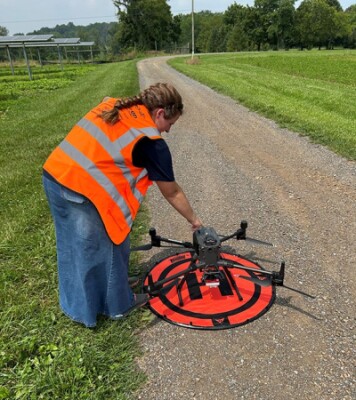
This year more than 75 students will be enrolled at WarrenUAS, studying the development, flight and maintenance of drones and their use in a wide range of fields – from law enforcement and utilities to mapping, surveying and delivery services. They will have access to more than $5 million worth of drone and robotic equipment, including the latest technology for multispectral sensing and data processing through artificial intelligence, all housed in a new state-of-the art center for robotics and uncrewed systems and outdoor multi-function flight training center.
The college is particularly focused, however, on precision agriculture, helping its students along with farmers from throughout the region explore new tools and technology for assessing and treating farmland and crops.
Students, expert faculty members, farmers and specialists in agriculture – including several from other universities collaborating with WarrenUAS – are working hand-in-hand to identify key concerns for individual farms and tailor solutions on a case-by-case basis. This collaboration trains students and farmers in the blossoming field, grows the body of knowledge about the new technology and helps farms be more successful and sustainable.
“We have built a structure where cutting-edge research in precision agriculture can take place – where our students and people working in agriculture can find new ways to use this technology,” says Will Austin, president of the college, who made WarrenUAS and the precision agriculture program a priority for the school. “We are in the midst of a paradigm shift in agriculture, and we want this program to help build what comes next,”
Austin recently hired Kyle, one of the leading graduates of the drone training program at the prestigious Embry-Riddle Aeronautical University, to help him and other experts at WarrenUAS build the precision agriculture training initiatives, which would teach theory and techniques for operating drones on farmland, but, just as importantly, work with local farmers so both can grow their understanding of the technology’s reach.
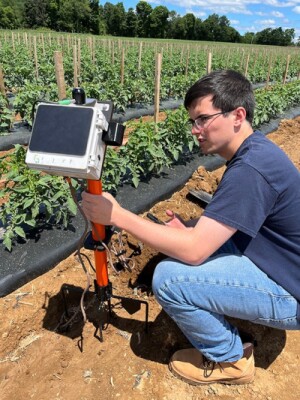
Kyle explains that the drones are able, through multi-spectral imaging, to read plant health, the type and level of potential pest infestations or disease and the level of moisture in the soil but then also treat very specific areas with precise application of the needed herbicides, pesticides, irrigation and fertilizers.
“They can monitor a field easily for things like wildlife damage or flooding, but then also get precise data about their fields that can then be processed to get equally precise strategies that will help plants thrive,” Kyle says. “And it all can be collected so much faster and so much more accurately than with traditional methods. Then it can help with the solution, making it more precise efficient and sustainable.”
The U.S Department of Agriculture points out that precision agriculture involves site-specific (crop) management (SSM), which uses a variety of technologies to manage different parts of a farmer’s land.
“SSM practices use precise global positioning combined with location-specific measurements—either in-field data collection (such as soil variables or pest occurrence) or remotely sensed data (such as from aircraft or satellites)—to quantify spatially variable field conditions,” USDA reports.
It notes that “SSM is more akin to traditional agricultural practices, wherein small-scale, non-mechanized farming permitted spatially variable treatments.”
“Farmers,” it notes, “once possessed intimate knowledge of each small corner of each field and, because agronomic practices were primarily manual, could readily translate that knowledge into location-specific cultural practices.”
Austin and Kyle are well aware of how the technology can serve that purpose and benefit the smaller, independent farmer by making them more efficient and productive and allowing them to be more sustainable and produce healthier foods.
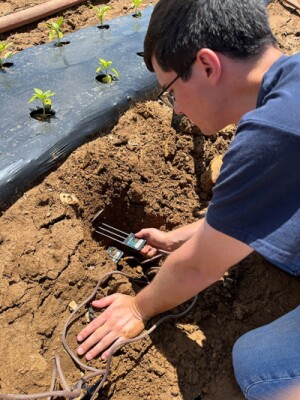
Kyle explains that with drones and other analytical technology, farmers can be more precisely prescriptive, identifying what the land needs with the sophisticated data they can have at their fingertips. But drones also can allow them to avoid compacting land with heavy equipment, for instance, track cattle, evaluate property and structures or study wildlife damage – even eventually deliver their supplies or goods coming from the farm.
Austin says his goal is to have students graduate who understand safe and efficient drone use, the fundamentals of farming and the way the two come together. Through classroom instruction meshed with a new agriculture curriculum and hands-on training with the latest equipment on working farms, he hopes students can either create businesses that can contract with farmers to use the technology on their land or consider careers working in farming.
“We have developed a program that benefits farmers who want to learn about and apply this technology and that trains professionals who can help them and have careers in this advancing field,” Kyle says.
For Chris Schaefer, the highly regarded precision agriculture program at WarrenUAS is providing him a pathway forward to explore and learn about two things that he loves: drones and growing things.
“I want to see farmers like my grandfather be able to use this technology to the fullest. It has incredible potential to change agriculture – not just in this region and this country but with small farms anywhere in the world that will be able to produce crops in a more efficient, sustainable way.”
| Want more insights on drones in agriculture? Check out a special edition of our Uncrewed Views podcast with Adam Kyle from WarrenUAS – and be sure to stop by the Warren Community College booth at next week’s Commercial UAV Expo in Las Vegas (Booth 251). |


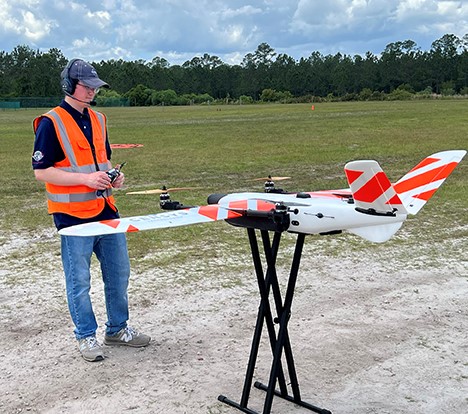

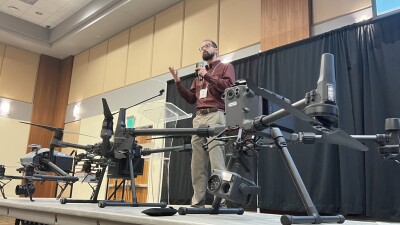
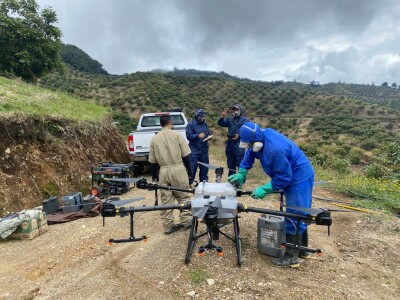










Comments